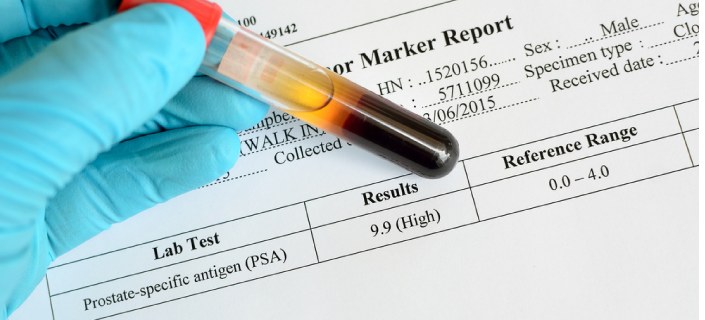Blood tests used to detect prostate cancer may not be accurately diagnosing the disease in obese men, according to researchers at Vanderbilt University Medical Center. Screening for prostate cancer involves testing blood for prostate specific antigen, or PSA, a protein produced by the prostate gland. Higher-than-normal blood PSA levels may indicate cancer, since more protein leaks into blood when a tumor is present in the prostate gland. Past studies showed that African-American men had higher levels of this protein than Caucasian men. To find out how obesity affected blood PSA levels in the two racial groups, the study’s authors tested blood from 299 healthy men 150 African-Americans and 149 Caucasians. They also calculated subjects’ body mass indices, a measure of obesity, and found PSA levels were lower in obese men of both races. Therefore, a marginally elevated PSA level rather than levels usually used to diagnose cancer might indicate cancer in obese men, although the study did not look at that question directly.
BOTTOM LINE: “We need to be careful while screening obese men for prostate cancer,” said Jay Fowke, the study’s lead author. “For some reason, PSA levels are suppressed in obese men.”
CAUTIONS: The study was conducted on a small group and looked only at healthy men, so the research showed only that obese men seem to have lower PSAs than men of normal weight and not if the PSA tests are underdiagnosing cancer in obese men.
WHAT’S NEXT: The researchers are going to look at PSA levels and obesity in both healthy men and men with prostate cancer.
WHERE TO FIND IT: Cancer, Nov. 15
SENA DESAI GOPAL



